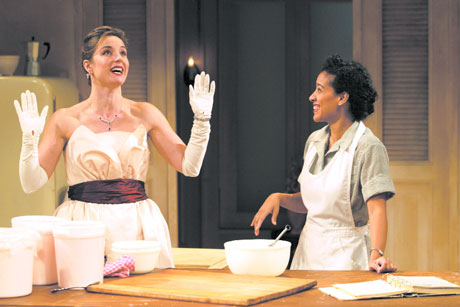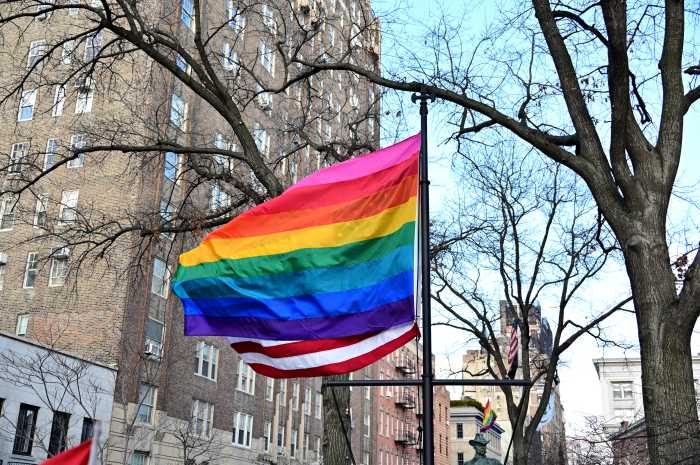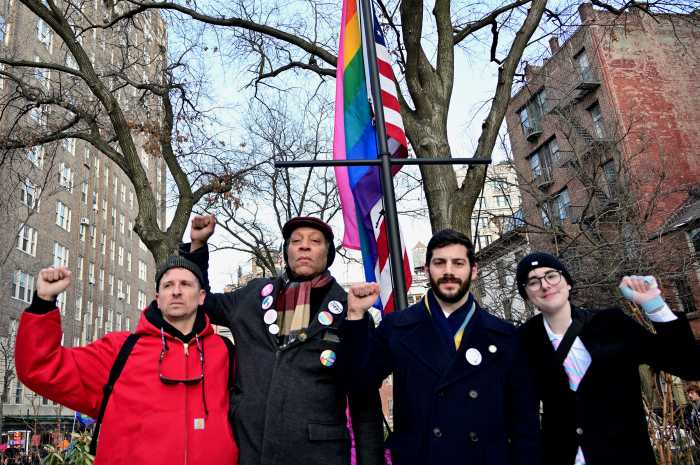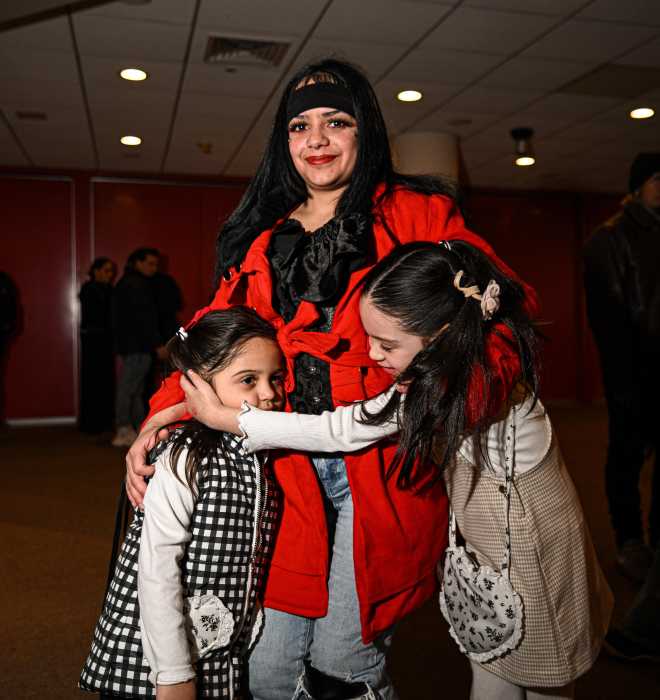Thinly inspired by prostitutes, a Cuban writer takes on regimes past and present
Havana, New Year’s Eve, 1959. Adria, the lady of the house, in panic, getting ready to flee with her husband to Miami, says to Gladys the cook: “You don’t care about me.”
The cook says: “I do.”
“How can you? You work for me.”
“I do, with all my heart, Adria.”
“You never called me Adria.”
“You’re leaving,” says the cook, “and I want to say your name…”
“Do not let them in here. Fidel’s army.”
“Never…not while I’m alive. I promise.”
Gladys the cook also promises to hold and preserve the house, just as it is, so as to be able to turn it back over to her employer in perfect condition, however long it may take—no matter how many months or years—for Adria to return to Havana and her privileged existence there.
The lady of the house kisses the cook on both cheeks. “Tell them I went to Paris!” says Adria, and dashes out the door in her mink coat and is gone.
That is how Eduardo Machado’s “The Cook” reaches its first act curtain.
Thirty-seven years later (we are now in Act III), Gladys, in her 70s, has kept the faith. She is still holding the fort for the woman who fled into the night—not to Paris but to Miami—so long ago, and from whom not one word has been heard since. It is not our house, it is hers, Gladys keeps informing husband Carlos, the onetime chauffeur who has risen in the world to revolution-spouting blowhard apparatchik in the Castro administration—the same Carlos who would not lift a finger when an increasingly cruel homophobia dragged Gladys’ reckless young cousin Julio off into permanent darkness.
Now, suddenly, one fine day, Adria’s grown daughter Lourdes turns up in Havana. Are there thanks for guarding this house? Tears of joy and reunion? Any message from Adria? No, indeed. My mother, says Lourdes, addressing Gladys with all the ice-cold contempt of a member of the French aristocracy contemplating Mme. Defarge at the foot of the guillotine, my mother never once mentioned you in all these years—and why the hell did you steal her house, my house, anyway?
Eduardo Machado, the man who wrote this play, and two dozen other sensitive, pointed dramas including “Cuba and the Night” and “Havana Is Waiting,” was himself flown out of Havana, at age 9, in 1962, by the “Peter Pan” airlift, thanks to the desire of his parents that their children should not grow up under Fidel Castro. He has been back three times, all three since 1999.
“The Cook,” which has done so well at the Intar Theater on West 53rd Street that it’s been extended into January, came out of the second of those three visits, in the summer of 2001.
“I was going to write a play about prostitutes, male and female, there in Havana,” Machado said, “but I found them really boring after about a day of their telling me their stories. There was this place I would go to eat, a restaurant in the kitchen of a large house. I noticed on the wall a picture of a blonde woman, obviously from the 1950s.
“I asked the woman who ran the restaurant—a woman in her 70s—who that was. She said: ‘That is the woman who owned this house, the woman I worked for,’ but she would not tell me anything more, or anything about herself. Except that one day she sent me a plate of tamales, and said: ‘This is the last proof of the native cuisine of the indigenous people who used to live here.’
“It is she, this woman who ran that restaurant, who represents Cuba—she, not the prostitutes. A lovely, poised woman—and that’s what I like about Zabryna’s performance.”
Zabryna Guevera plays Gladys the cook, and she is, yes, poised and lovely and volatile all mixed up into one. Maggie Bofill plays both Adria and Adria’s daughter. Jason Madera is Carlos and Jason Quarles is Julio. Nilaja Sun plays two supporting roles, and the perhaps somewhat indulgent director in charge of all of them is Michael John Garcés
“I wanted to write a play about people who just lived there through the whole revolution and were not political at all—or, yes, could be political or not, just the way we are. This was also a good way to talk about American foreign policy”—that is, the now perpetual U.S. embargo of Castro’s Cuba.
“When we did the play in Lousiville,” said the playwright, “we had these little cards for audience comments, and a number of the cards said: ‘I don’t think the embargo has anything to do with people.’ Well, the embargo has everything to do with people, it’s choking people, and it’s even worse now than before because Bush has taken away more and more of the visas that were given for cultural reasons.”
Machado brings the matter right down to the personal level.
“I won’t be able to go back there for a couple of years,” he said dryly, and then added: “As of March, the Cubans who live outside of Cuba will be able to visit Cuba without any special permission from the Cuban government—so you see, now the bars are only one-way.”
There were two other things Machado wanted to have this play touch on: “The naiveté of people who are wealthy and just happen to live in, or to have lived in, Cuba; this whole class struggle that never ends. And then there’s the relentless anger and need for revenge of the [anti-Castro] Cubans I have known.”
Which leads to a third thing—race relations.
“If you get on a raft and go to Miami and you’re a black Cuban, it’s not the same as if you get on a raft to go to Miami and you’re white,” Machado explained. “The black people who come in by raft, when they land in Florida, they have to go to the Haitian community. The whites won’t take them in.”
And a fourth thing. Homosexuality and the fate of Julio, the cook’s flashy, scared young cousin.
“No,” said Machado, “I have never before written about this.”
Well, he once had, but that was more than 20 years ago, way back in 1982 when he wrote his very first play, “Faviola,” one of four by him that went as a package to the Ensemble Studio Theater.
“The E.S.T. did two of them, and then didn’t want to do ‘Faviola,’ so I took it to Crystal Field and George Bartenieff at Theater for the New City, and they said: ‘We’ll do it,’ and they did. And now I’ve done—God, how many? — six plays there.
“Anyway, ‘Faviola’ was about an incestuous relationship between two brothers—”
Based on?
“… family secrets,” Machado said, with a burst of laughter.
Then, sans laughter: “Back in 1986, Nestor Almendros [the great Cuban-born cinematographer] sent me the galleys, in Spanish, of an about-to-be-published book ‘Before Night Falls,’ by Reinaldo Arenas”—a poet and novelist brutally mistreated under Castro. “I very much wanted to turn it into a screenplay, but before that could happen, all the people involved had died of AIDS.”
(“Before Night Falls” was turned in to a first-class movie by Julian Schnabel in 2000, with a brilliant performance by Javier Bardem as Arenas, and two astonishing supporting performances by Johnny Depp.)
“So I guess it’s been in my mind. When you go to Cuba and talk to theater people, the treatment of gays is very much a part of their lives,” Machado said. “It’s like the blacklist once was in this country. People lost jobs. Had their lives ruined. And then the detention camps. A lot of people were [like his play’s Julio] killed in the camps. Not officially, but through riots and so forth.”
Had he drawn on any real person or persons for Julio?
“He’s just a guy.” Stops. Thinks. “But I guess I used the character of some of the prostitutes I talked to. I didn’t realize that until you asked me.” Thinks some more. “And the daughter who comes back: My sister thinks it’s her—and was most vocal about it, and most hurt.”
Machado has three sisters. I didn’t ask which one—and he didn’t tell.
A professor of playwriting at Columbia University, Machado owes much in his life and career to playwright/teacher Irene Fornes, including a 1980 appearance as an actor in a musical of hers at Theater for the New City called “A Visit.”
He was one of the gardeners in it.
“We had porcelain penises,” Machado happily remembered. You couldn’t print that in 1980.



































